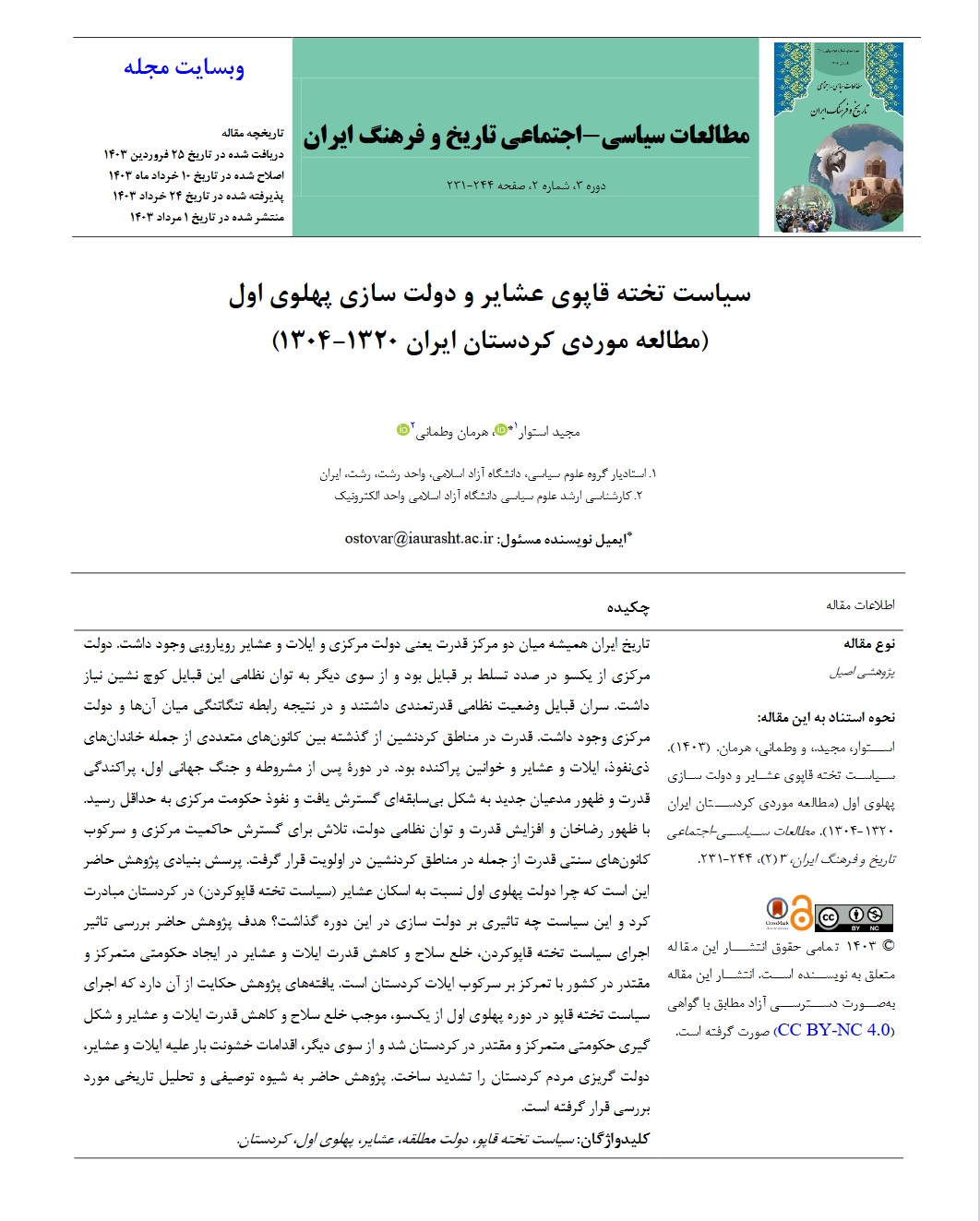The Policy of Forced Sedentarization of Nomads and State-Building in Early Pahlavi Era (A Case Study of Kurdistan, Iran, 1925-1941)
Keywords:
Nomad Settlement Policy, Absolutist Government, Nomads, First Pahlavi, KurdistanAbstract
Throughout Iran's history, there has always been a confrontation between the central government and the tribes and nomads. The central government aimed to dominate the tribes, while simultaneously relying on their military capabilities. Tribal leaders held significant military power, resulting in a close relationship between them and the central government. In Kurdish regions, power had historically been distributed among various centers, including influential families, tribes, and chieftains. Following the Constitutional Revolution and World War I, the dispersion of power and the emergence of new claimants reached unprecedented levels, minimizing the central government's influence. With the rise of Reza Khan and the increasing military strength of the government, efforts to expand central authority and suppress traditional power centers, including in Kurdish areas, became a priority. The fundamental question of this research is why the early Pahlavi government pursued the sedentarization of nomads (the policy of Takht-e Qapu) in Kurdistan, and what impact this policy had on state-building during this period. The present study aims to examine the effect of the implementation of the Takht-e Qapu policy, disarmament, and the reduction of tribal power in creating a centralized and powerful government, with a focus on the suppression of Kurdish tribes. The findings indicate that the implementation of the Takht-e Qapu policy during the early Pahlavi period resulted in the disarmament and reduction of tribal power, leading to the formation of a centralized and powerful government in Kurdistan. Conversely, violent actions against the tribes intensified the people's aversion to the government. This research has been conducted using a descriptive and historical analysis method.
Downloads







